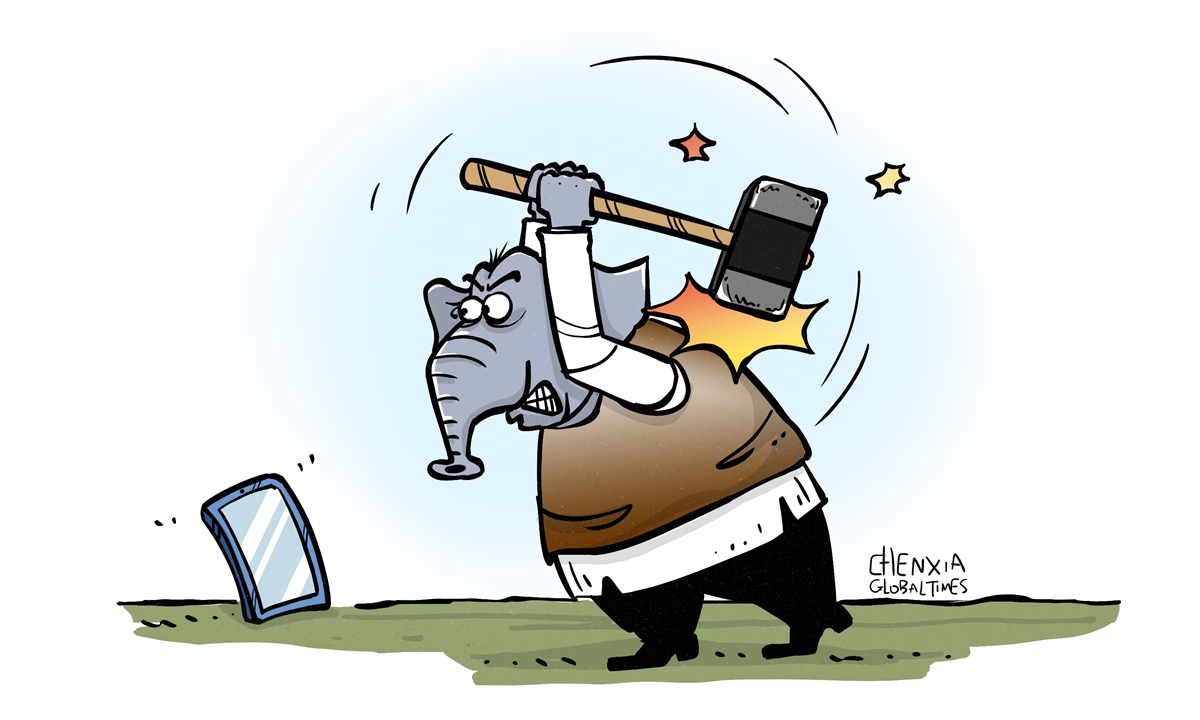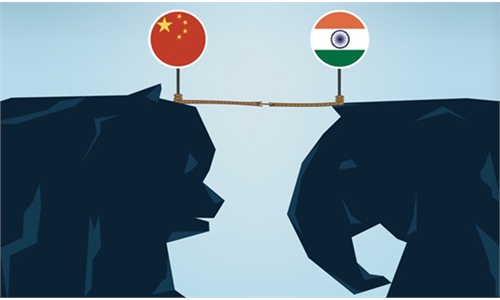
Illustration: Chen Xia/Global Times
Muralikrishnan B, the president of Xiaomi India, was quoted by Reuters as saying on Monday that the Chinese smartphone maker will focus on boosting its India sales from retail outlets after years of big bets on e-commerce. The shift is expected to bring more employment opportunities for local Indian people.Xiaomi plans to hire more in-store promoters - salespeople who lure customers, and pitch and sell phones to prospective buyers inside outlets. It targets tripling the count to 12,000 promoters by the end of next year from early 2023 levels, Muralikrishnan was quoted as saying.
India recently stepped up a crackdown on the Chinese companies that dominate its smartphone market in actions that have raised concerns about India's business environment. The latest target is Xiaomi. India's financial crime agency said in June that notices had been issued to the Chinese smartphone manufacturer over alleged illegal remittances it made to foreign entities. About $670 million of Xiaomi's funds have reportedly been frozen by India's government since last year.
Xiaomi, once the top smartphone brand in India, faces an uncertain fate in the country with its funds frozen. Xiaomi India's market share slipped to 17 percent in the fourth quarter of 2022 from 21 percent in the first quarter, the Times of India reported, citing a report from market consultancy Canalys. Samsung shipped the largest number of smartphones and took the No.1 spot in the final quarter of 2022, dethroning Xiaomi, the report said.
Amid India's strict regulatory crackdown on Chinese firms, Xiaomi has been having a hard time. However, its shift toward retail outlets demonstrates it has an amazing ability to create jobs for Indian people. If Xiaomi can receive fair treatment and improve its operations in India, we believe it can create more jobs for local people.
India's strict crackdown on Chinese companies is connected with the trend of rising nationalism and populism in the country. However, economic nationalism is hazardous and will not only thwart Chinese companies but also harm Indian workers directly or indirectly working for Chinese firms.
Due to nationalism and populism, India's crackdown on Chinese firms is likely to intensify, but protectionism by the Indian government will certainly backfire on India's economy and local people.
Wang Yi, director of the Office of the Foreign Affairs Commission of the Communist Party of China (CPC) Central Committee, on Friday met with Indian External Affairs Minister Subrahmanyam Jaishankar, during which Wang urged India to provide a fair, transparent and non-discriminatory business environment for Chinese companies.
India has for a long time pondered ways to ramp up manufacturing and foreign direct investment (FDI) inflows. However, India has approved fewer than one-quarter of the 435 FDI applications from China since April 2020, when the government tweaked the FDI policy, Indian news outlet Mint reported in June. This means that India has missed out on large-scale Chinese investment and potential employment opportunities.
In recent years, India's consumption has grown along with its expanding middle class and increasing affluence. Undoubtedly, the Indian market is attractive to multinational corporations. But, if India wants to transform its market potential into manufacturing capability, employment growth and economic development, it still has a long way to go. The first step is to crack down on populism and political extremism, promote globalization and create a non-discriminatory business environment for foreign companies.
The economic complementarity of China and India creates potential for cooperation in fields such as mobile phones, computers and other types of consumer electronics, which shouldn't be sabotaged by rising nationalism and populism in the South Asian country.
The author is a reporter with the Global Times. bizopinion@globaltimes.com.cn



